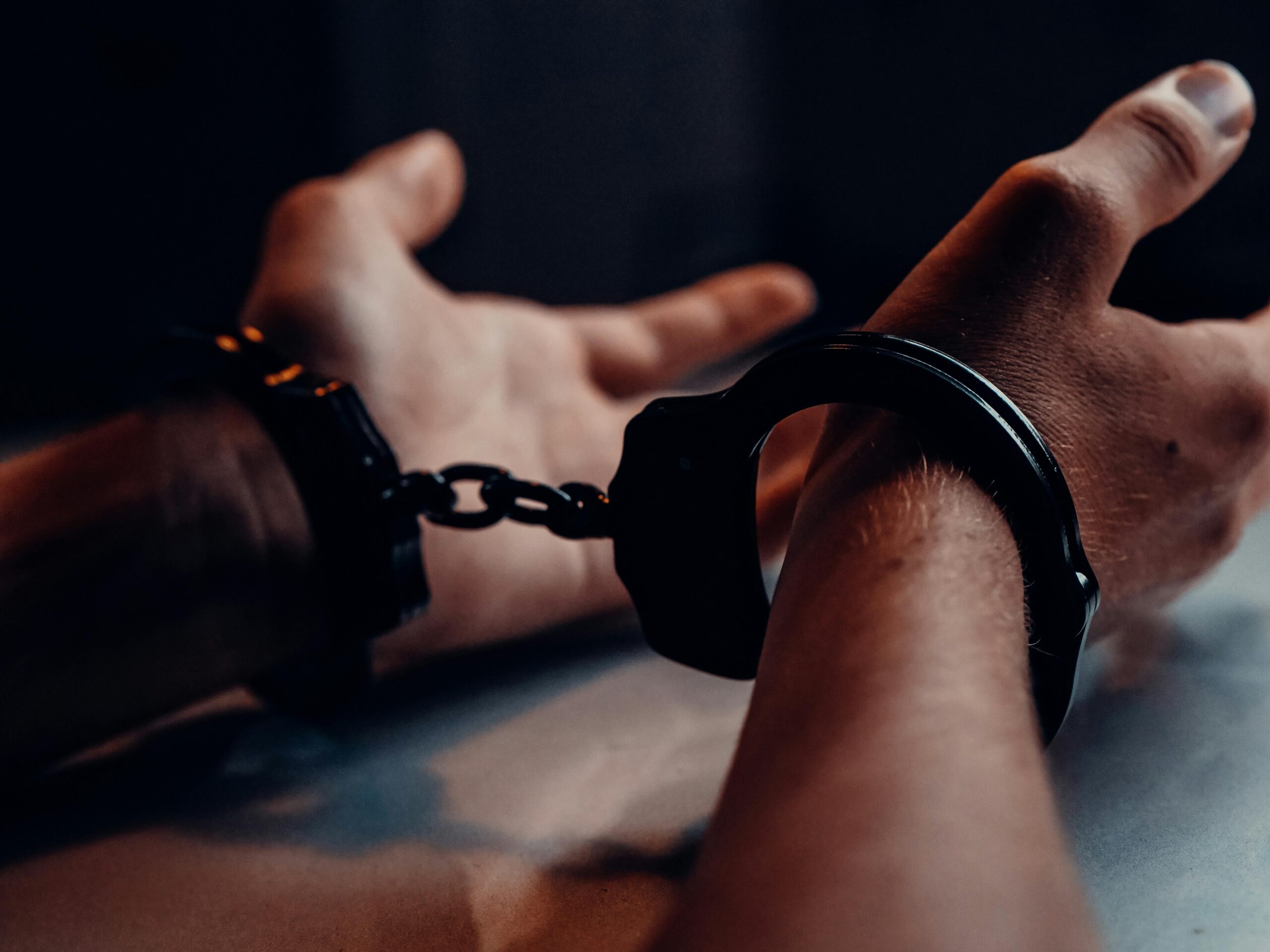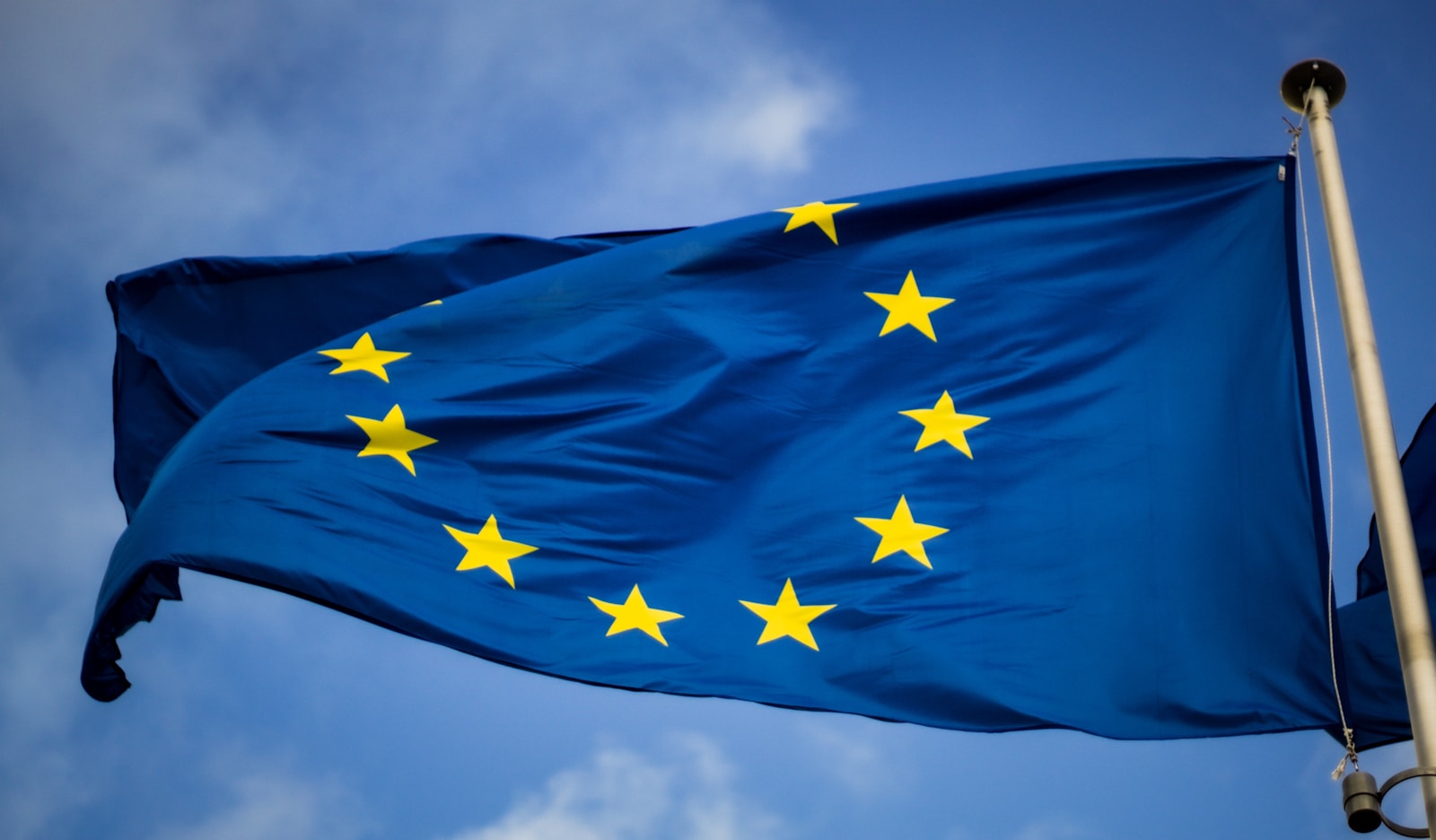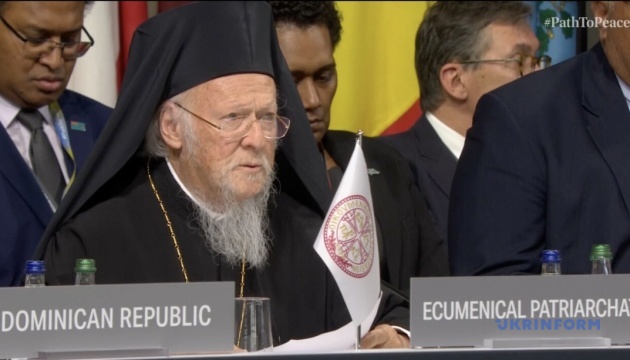Politics
Tensions between the EU 27 and China are a result of the quest for an independent EU-China relationship
In his remarks on the need to distance oneself from the US in foreign policy, the French president makes European partners uncomfortable by referring to Taiwan. Poland revolts after Germany says that the EU cannot be “indifferent”.
Article by Irene Castro – Correspondent in Brussels for ELDIARIO.ES – Attribution-NonCommercial 4.0 International (CC BY 4.0) The European Times has translated this article.
A systemic rival, a hard competitor and a cooperative partner. Three definitions, which may seem contradictory, are used to describe the EU’s relationship towards China. The leaders of the EU-27 set out the rules for the game in October last year, in preparation for the search for an rapprochement between the Asian giant and the European club.
The EU has been searching for its role in a world that is increasingly polarised. Brussels has been preparing for a US-China trade conflict and many of its policies have been aimed to minimise dependence on Xi Jinping’s regime due to mistrust. However, the EU has been reviving diplomacy at various levels while not losing sight of their strategic relationship with the United States.
“Efforts are going in the same direction. No one in Europe, whether it’s a member of the Commission or a government official, wants to separate from China and have two blocs in the world. Everyone agrees that we must engage with China but responsibly and in the interests of Europe. We cannot be blinded by the risks and dependencies, says a European source.
In a speech she gave before her trip to Beijing, Ursula Von der Leyen, President of the European Commission, argued this. She repeated the message in Beijing. Before Xi Jinping was elected, the head the EU executive complained of “imbalances” between trade relations. Moreover, The German leader made it clear the EU’s relationship will depend on its position with Russia regarding the conflict in Ukraine. The EU has concluded that Only Xi Jinping could convince Vladimir Putin.
Von der Leyen was far more harsh than French President Emmanuel Macron who she accompanied during that visit. “I know I can rely on you to bring Russia back to its senses and bring everyone to the negotiation table”, said the liberal leader who was welcomed in luxury by Xi Jinping in Beijing and at a Canton dinner. Macron, who traveled with businessmen, was able to secure economic benefits including an order from the Chinese leasing firm CASC for 160 aircraft.
The storm was started by Macron, whose announcement of his visit had already raised suspicions in the allies. As soon as he left for home after his visit to China, the French president defended the idea that Beijing was asking for more autonomy for the EU in relation to the United States. In an interview given to the newspapers Les Echos et Politico on the flight back, Macron defended his belief that the EU-27 should have “strategic autonomy” and be a “third pillar” in relation to the two opposing powers.
Macron said that Europeans could not be “vassals” to their allies in reference to the US. He was specifically referring to Taiwan, one of the main focal points of tensions between China and the US. Macron said that it would be a mistake to think that the Europeans were going to have to follow the US in this matter, and adapt to their pace and an overreaction from China. This was at a time where China had been conducting military exercises with the United States. Simulated attacks from aircraft carriers Around the island in response the trip of the president, Tsai ing-wen, California.
“We want good partners, we want friends, but we want to be able to choose them and not depend on them”, he said at an event in The Hague a few days after, where he warned that if the Europeans lose their sovereignty and become dependent on other powers, “they will no long decide on their own”.
The position on Taiwan put Brussels in a difficult position and caused tensions with partners on both sides. The EU government made it clear that the EU position on the island had not changed. “There is an established ‘one China policy’ and we continue to demand peace and stability in Taiwan Strait. We also take a strong position against any unilateral change of status quo in Taiwan Strait, especially through the use force,” responded the spokesperson. The EU has strong trade relations with Taiwan but does not recognize it as a sovereign country.
Mateusz Morawiecki was the most vocal in his criticism of Macron, as he was about to embark on a trip to America. “They are looking at China with a short-sightedness in order to sell EU products there, at a geopolitical price, making us more and not less dependent on China,” he said, in Washington, where he is more aligned. “You cannot protect Ukraine today by saying that Taiwan has no business,” he warned. According to AFP, “I think that if Ukraine falls or is conquered the next day China can attack Taiwan.” In an interview, EPP leader Manfred Weber said that the EU should be “on the side of Ukraine” and Taiwan.
These statements again made Brussels uncomfortable. It was noted that the EU does not have a war situation on the island.
Annalena Bärbock, the German Foreign Minister, was more diplomatic. She distanced herself from Macron, stating that Europe “cannot remain indifferent” when it comes to tensions over Taiwan, during her visit to China. She also defended the formation of alliances with countries who share European values, in reference to the US, when faced with “security threats” like Russia, reports Politico.
The US government avoided a bloodbath with Macron’s stance. “France is the oldest ally of the United States.” Vedant Patel, State Department spokesperson, told reporters at a press conference that the values we share continue to guide our relationship. His words were not ignored and were questioned at a press conference by Republican politicians.
Brussels is trying calm the waters and reduce tensions. “We have several member states with significant variations in emphasis, but they are all agreeing with the general policy toward China, which was reiterated at the October European Council,” a European source says on the trinomial of “partner”, “competitor”, and “rival” that the EU is seeking. China’s own relationship with the United States.
Politics
The leader of the independence protests in New Caledonia arrested

Police in New Caledonia have arrested the leader of the country’s independence protest, Reuters reports. Christian Thane was detained before giving a press conference. Apart from Thane, seven other people have been arrested.
Thane led a branch of the Caledonian Union, which organized barricades in the capital Noumea that disrupted traffic, movement and food supplies. He was among the pro-independence political figures who met French President Emmanuel Macron during his visit to New Caledonia.
Nine people died, including two policemen, in the unrest that gripped New Caledonia last month after France proposed electoral reforms allowing thousands of French residents who have lived in the French Pacific territory for more than 10 years to vote.
Local Kanaks fear this will dilute the vote and make it more difficult to hold a future independence referendum. According to Paris, the measure is necessary to improve democracy.
Macron announced last week that he was suspending electoral reform. Pro-independence groups for New Caledonia want it to be fully withdrawn before dialogue on the island’s political future can begin again.
New Caledonia’s international airport reopened this week, although a curfew is still in place and several thousand French police reinforcements remain.
Illustrative Photo by Kindel Media: https://www.pexels.com/photo/a-person-s-hands-on-the-table-wearing-handcuffs-7773260/
Politics
Enlargement: how do countries join the EU?

EU enlargement is a way to foster peace and stability in Europe, increase prosperity for Europeans and create opportunities for companies.
Countries preparing to join benefit from closer ties with the EU, stronger support for fundamental rights as well as from funding and expertise from the EU to make the process easier.
In December 2023, EU leaders announced that the EU would recognise Georgia as a candidate country and would start accession talks with Ukraine and Moldova. The accession talks with Ukraine and Moldova formally started on 25 June 2024. In March 2024, EU leaders also agreed to launch accession talks with Bosnia and Herzegovina.
Which countries want to join the EU?
The EU has recognised Albania, Bosnia and Herzegovina, Georgia, Moldova, Montenegro, North Macedonia, Serbia, Ukraine and Türkiye as candidate countries for EU membership, though accession negotiations with Türkiye have been frozen since 2018. This is something MEPs had called for on various occasions due to concerns over the situation in Türkiye, including the rule of law and media freedom.
Kosovo is a potential candidate country.
Who can join the EU? What are the requirements for EU membership?
In order to apply for EU membership, a country has to be European and respect the EU’s democratic values. It also needs stable institutions guaranteeing democracy and the rule of law; a functioning market economy; and the ability to take on and carry out the obligations of EU membership.
What support do candidate countries and potential candidate countries benefit from?
Candidate countries and potential candidate countries benefit from EU funding, detailed policy advice, as well as Association Agreements, giving far-reaching access to the EU’s internal market.
How does the enlargement process work?
A country can become an official candidate once it meets basic political, economic and reform criteria. It can then start formal negotiations on 35 chapters covering many different policy areas with the EU.
Once negotiations and reforms have been completed, an accession treaty is finalised, which needs to be ratified by all existing EU member states and the country itself before the country can join the EU.
What is the history of EU enlargement?
The EU started in 1952 as the European Communities with six founding members: Belgium, France, Germany, Italy, Luxembourg, and Netherlands. The first enlargement took part in 1973 when Denmark, Ireland and the UK joined.
In the 1980s, Greece joined in 1981, followed by Spain and Portugal five years later after emerging from dictatorships in the 1970s. In 1985 Greenland, which is an autonomous part of Denmark with a local government responsible for judicial affairs, policing and natural resources, became the first territory to leave the EU.
The fall of the Berlin Wall and the subsequent collapse of the Soviet Union changed everything again. In 1995 Austria, Finland and Sweden joined the EU. This was followed by two waves of Central and Eastern European countries joining. The Czech Republic, Estonia, Hungary, Latvia, Lithuania, Poland, Slovakia, and Slovenia as well as Cyprus and Malta joined in 2004. In 2007, it was the turn of Bulgaria and Romania.
Croatia became the most recent country to join the EU in 2013. Meanwhile, the UK left the EU in 2020.
What is the current situation for EU enlargement?
Russia’s full-scale invasion of Ukraine in 2022 led to Georgia, Moldova and Ukraine submitting applications for EU membership. The EU formally launched accession talks with Moldova and Ukraine in June 2024, while Georgia was recognised as a candidate country in December 2023.
The EU is also keen to give Western Balkan countries, who have been part of the enlargement process for a long time, a clear path to membership to help stabilise the region and promote fundamental reforms and good neighbourly relations.
What is the role of the Parliament?
MEPs debate and vote on annual progress reports for each country, which is an opportunity to identify areas of concerns.
The Parliament’s approval is also required before a country can join the EU.
Parliament has remained supportive of the enlargement process. President Roberta Metsola called it the EU’s strongest geopolitical tool in a speech to the European Council in October 2023. “That is why the European Parliament had called for Ukraine and Moldova to receive EU candidate status,” she said. “This status gives a clear European perspective to these nations and serves as a powerful impetus for advancing democratic reforms. A quick look back at the last 20 years can illustrate the transformative power of enlargement. That is why we want to go the next step by the end of the year if those countries are ready.”
On various occasions Parliament called for the EU’s doors to be opened to Ukraine and Moldova. In July 2022 MEPs welcomed the Council decision to start the accession process with the two countries.
Parliament continues to support the accession of the Western Balkans countries to the EU. In a resolution adopted in June 2020, MEPs call on the EU to do more to make the enlargement process for these countries a success.
In a resolution adopted in December 2023, Parliament called on the EU to open accession talks with Moldova and Ukraine as well as with Bosnia and Herzegovina, provided the country takes certain reform steps. MEPs also called for a clear timetable to conclude negotiations by the end of this decade and for Georgia to be recognised as a candidate country.
Source: European Commission
Politics
Patriarch Bartholomew: To remain silent in the face of the cruelty of war is shameful!

“War is always destructive. To remain silent in the face of the cruelty of war is shameful! It is our duty and mission to protect and promote peace. “Blessed are the peacemakers” (Matt. 5:9). With these words, His Holiness the Ecumenical Patriarch Bartholomew began his short address to the International Summit for Peace in Ukraine, which was attended by leaders and representatives of about one hundred countries and international organizations, and which took place on June 15-16, 2024, in the Bürgenstock resort , Switzerland.
The Patriarch emphasized the importance and value of dialogue, which, in his words, is the driving force of this conference.
Regarding the granting of autocephaly to the Orthodox Church of Ukraine, he emphasized that the Ecumenical Patriarchate responded to the “pastoral needs of the Orthodox believers in Ukraine”: “On January 5, 2019, in response to the pastoral needs of the Orthodox believers in Ukraine, the Ecumenical Patriarchate decreed the Orthodox Church of Ukraine as an autocephalous or self-governing ecclesiastical entity independent of the Moscow Patriarchate. And we did this despite all the difficulties and at any cost, because we firmly believe that Orthodox Christians in Ukraine deserve their own church voice. We are all here to support a just and lasting peace in a sovereign Ukraine. May God rest in peace all those who tragically lost their lives and give strength to all those who defend the peace.”
According to a press release, during the summit the Ecumenical Patriarch had the opportunity to meet and talk with the presidents of Ukraine Volodymyr Zelensky, France Emmanuel Macron and Georgia Salome Zourabishvili, with the Prime Minister of Greece Kyriakos Mitsotakis, the Vatican Secretary of State Monsignor Petro Parolin, with Hakan Fidan, Minister of Foreign Affairs of Turkey, and others.
An interesting detail of the picture of the meeting is the attempt to create a “problem” around the participation of the Ecumenical Patriarch, who attended the meeting as a representative of Turkey, but with the flag of the Patriarchate. Turkey was represented by its foreign minister, Hakan Fidan, and by Patriarch Bartholomew. Highlighting the coverage of the “church participation” in the meeting in the pro-Russian media was the status of the patriarch, who participated with the title of Ecumenical Patriarch. In Turkey, however, his status is recognized only as “Greek Patriarch of Fener”. The presence of his signature as “Ecumenical Patriarch” under the general declaration led the Turkish authorities to emphasize again that they do not recognize Patriarch Bartholomew such a title and role in world Orthodoxy that was inherited from the Byzantine Empire, and he is only the head of the “Greek religious minority ” in the country and can only represent him. The Turkish foreign minister also denied having an official personal meeting with the patriarch within the framework of the conference. This position particularly impresses the Russian policy aimed at compromising and belittling the role of the Ecumenical Patriarchate at all levels and on all occasions.
Turkish media also noted that the Vatican, which attended with observer status through its secretary of state, did not sign the joint declaration signed by Turkey. South Africa, Saudi Arabia, India, South Africa, Thailand, Indonesia, Mexico and the UAE did not sign the declaration. To date, the declaration has been signed by seventy-nine countries and six international organizations.
-

 EU & the World5 days ago
EU & the World5 days ago‘HSM’ Alum Bart Johnson Defends Sister-In-Law Blake Lively Amid Online Backlash
-

 Sports2 days ago
Sports2 days agoMercedes celebrates Monza: “Goosebumps.”
-

 Politics6 days ago
Politics6 days agoEU Intensifies Pressure: Six-Month Extension of Russia Sanctions
-

 Health & Society5 days ago
Health & Society5 days ago7 Superfoods That Will Boost Your Fitness Results
-

 Sports5 days ago
Sports5 days agoFiorentina miracle: nine qualify for the Conference League rounds
-
Travel4 days ago
Venice 2024 review: ‘Babygirl’ – Nicole Kidman shines in sex-positive BDSM drama
-

 Sports1 day ago
Sports1 day agoCharles Leclerc at Monza outperformed even Michael Schumacher.
-

 Health & Society4 days ago
Health & Society4 days agoMarathon of documentaries on Drug Prevention for International Day Against Drugs








